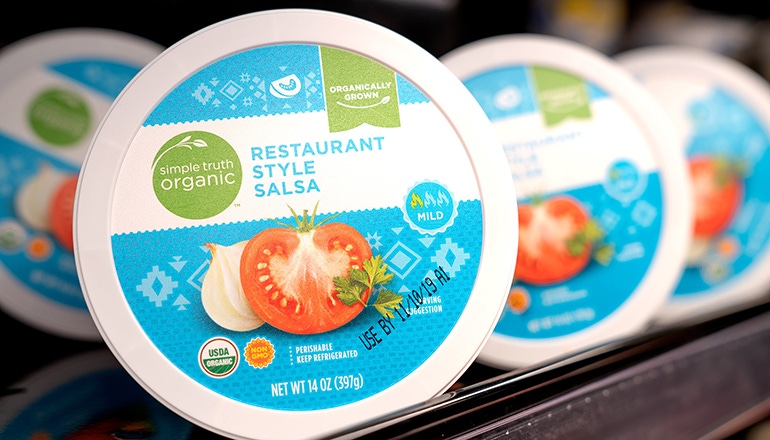Kroger to Standardize Date Labels to Reduce Food Waste
The retailer's focus on food labels to increase customer education marks another step in the company's Zero Hunger | Zero Waste journey.

The Kroger Co. announced its plan to standardize date labels for “Our Brands” food products, providing simpler, easier-to-understand product quality and safety information as part of its Zero Hunger | Zero Waste social impact commitment.
"Kroger recognizes food waste often takes place in our customers' kitchens simply because product date labels can be confusing, resulting in safe-to-eat food regularly being tossed out," said Howard Popoola, Kroger's vice president of corporate food technology and regulatory compliance, in a statement. "As Kroger works to reduce food waste throughout our business and our communities, we are standardizing and simplifying ‘Our Brands’ products' date labels, providing clearer guidance to our customers."
Paradoxically, one in nine Americans struggles with hunger every day, while 40 percent of the food produced in the country goes uneaten, which includes the food waste created in shoppers' households. And according to Rethink Food Waste Through Economics and Data (ReFED) research, 20 percent of avoidable food waste is estimated to be discarded every year because of consumer date labeling confusion.
"Standardized date labeling is one of the most cost-effective solutions to reduce food waste and provide more resources to food banks across the country," said Chris Cochran, ReFED executive director, in a statement. "We applaud Kroger's continued leadership on food waste reduction through its Zero Hunger | Zero Waste plan, and ReFED is proud to partner with America's largest grocer to help the retailer achieve its bold, commendable goal by 2025."
Earlier this year, Kroger began to transition Our Brands food products to feature one of the following date labels:
"Use By" is used to represent food safety. If a customer reads use by followed by a date, it indicates the deadline for when it is no longer safe to eat.
"Best if Used By" is used to represent food quality. If a customer reads best if used by followed by a date, it indicates the deadline for guaranteed freshness but does not affect the product's safety.
The simplified labels will apply to multiple product categories, including dairy, deli, bakery and fresh and frozen grocery.
"Kroger's Zero Hunger | Zero Waste vision was designed to use our scale for good to create positive change in every community where we operate. By implementing a standard and simplified new date labeling approach, Kroger and our customers can play an instrumental role in preventing tons of food waste from arriving at landfills, resulting in a healthier, stronger planet and communities free of hunger and waste," said Jessica Adelman, Kroger's group vice president of corporate affairs and chief social impact officer, in a statement. "Kroger is always searching for meaningful ways we can reduce food waste and make it easier for our customers to be Zero Heroes, joining us on our Zero Hunger | Zero Waste journey because we cannot do it alone."
Kroger will complete its Our Brands date label transition in 2020.
About the Author(s)
You May Also Like


